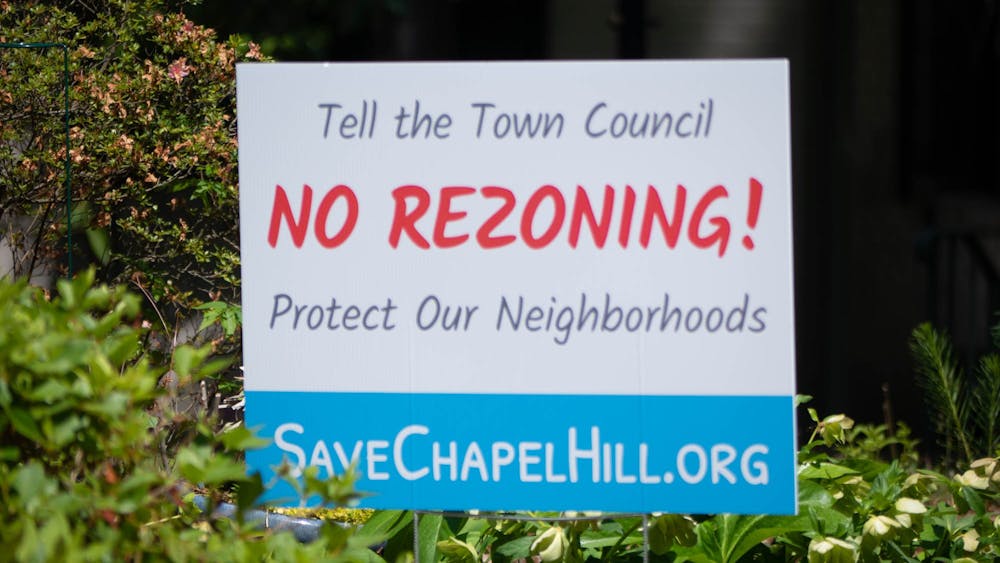Anyone driving through Chapel Hill these past few months has surely seen more than a few “Tell the Town Council ‘NO REZONING!’ Protect Our Neighborhoods” signs.
These signs were posted in the front yards of concerned residents in response to a text amendment proposal to the Town’s Land Use Management Ordinance. The amendment would allow for duplexes to be built alongside single-family homes.
To many wealthy Chapel Hill homeowners, I’m certain the word “duplex” is akin to “Voldemort.” You must not utter it and if you do, pray it doesn’t come to haunt you and decrease the value of your home. It seems to them that affordable and multi-family housing has no place in their historic neighborhoods. In fact, it’s a threat.
In the midst of their own affordable housing crisis, Wake County has experienced a significant loss of housing that is affordable to individuals and families earning less than 50% of the area's median income.
The county has sought partners since 2018 to help develop permanent supportive housing, specifically for its most vulnerable populations. With the help of California-based nonprofit Step Up, Wake County may have found a way to avoid similar citizen pushback when trying to solve the local housing crisis.
As of 2021, Step Up is responsible for housing 1,850 people, utilizing a unique model of creating more housing through the conversion of blighted motels, under-utilized office buildings, or malls into permanent supportive housing. After researching Step Up, Wake County’s director of affordable housing and community revitalization, Lorena McDowell, and her team endeavored to bring it to Wake County.
Throughout their service, they’ve found that this approach tends to be a win-win for communities. By eliminating motels that Step Up describes as “a nuisance,” while simultaneously chipping away at the homeless population, Step Up and Wake County are creating a solution to the affordable housing crisis that sidesteps the political objection we see in Chapel Hill.
Chapel Hill needs affordable housing desperately, but Town efforts to enact policy to make that possible are repeatedly fought by residents of wealthy Chapel Hill neighborhoods. If Chapel Hill were to adopt Step Up’s model, those residents wouldn’t have to be as concerned about their homes devaluing upon the construction of affordable duplexes because that wouldn’t be the only option for affordable housing.
Transforming “nuisance” motels or even vacant office space into fairly priced studio apartments tackles key issues that prevent the construction of more housing in Chapel Hill: a lack of available land and primarily single-family zoning. It’s almost like Step Up devised their model with Chapel Hill in mind.




